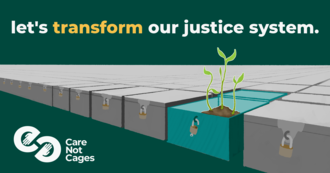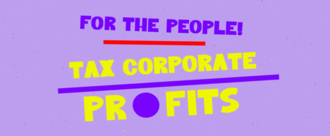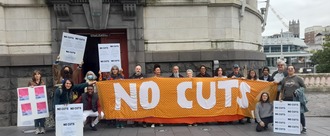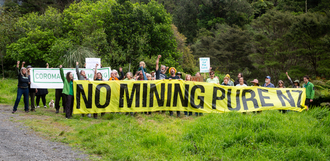-
Keep Nga Hau Māngere Birthing Centre openWhere a gap once existed, this state of the art centre has served many whānau, aiga & families. Over 860 babies have been born there. Thousands of women have experienced vital support via labour cares, antenatal clinics, lactation consultant appointments, contraception and birth education/hapū wānanga. 75% of women birthing at Nga Hau Māngere identify as Māori and/or Pasifika. Research has shown that in the first 2000 days Māori and/or Pasifika have preventable, inequitable experiences. Pregnant Māori and/or Pasifika have the highest death rates and are less likely to receive specialist care. Nga Hau Māngere is an already 'up–and–running' solution aligning with new health reforms under Te Whatu Ora's Te Pae Tata (2022). "Kahu Taurima | Maternity and early years" is 1 of the 5 priority actions this government plan (under priority action 1 ‘place whānau at the heart of the system to improve equity and outcomes’). The local community have spoken of how important the centre is: "Māmā in South Auckland deserve the best care while they are pregnant. Speaking from experience Nga Hau Birthing Centre was exactly that for me. They were amazing from the beginning until the end... I truly believe that if I had been with Nga Hau for my first pregnancy it would not have been so traumatic." "Our experience at Nga Hau truly set (us) up for success when we took our baby home. We were as rested as we could be and I was given all the help they had to offer to start our breastfeeding journey... I’ve always had such a sense of calm and a strong feeling of safety when walking through those doors. Mothers deserve to birth at Nga Hau and Mangere/South Auckland deserves to have this incredible facility in our backyard." "All in all a 10/10 experience for me... I pray to God that this place stays so that midwives are able to birth more of mine and other ladies' babies!" Nga Hau Māngere provides an essential service to the community and the Government needs to ensure funding is provided so it can remain open.9,218 of 10,000 SignaturesCreated by Rebecca Kingi
-
Make tertiary education accessible: study wage for all1. Learning is an inherently valuable contribution to society. To genuinely acknowledge education as a public good, we must value not only our educators, but also the students. 2. The current means-testing of the student allowance scheme exacerbates student poverty and is too flawed to truly ensure equity and fairness to marginalised groups. 3. We want to stop the downward trend of students dropping out because they can’t afford to keep studying. We need more students, including those who otherwise could not afford to study, in tertiary education so we have citizens prepared for an increasingly complex world. 4. Tertiary education is not just an investment into the individual, but to their whānau, community and Aotearoa. 5. Pre-1990, Aotearoa had relatively universal student allowances, and free tuition. Overseas, since 1996, Denmark has provided a universal student allowance too (which was 860 euros per month in 2022). Our own history and Denmark prove that a Study Wage for All is entirely possible. Normalised student poverty is not inevitable, it is a political choice. There are no more excuses to keep putting student poverty on the back burner. Barrier-free education is a public good that benefits our collective future. A Study Wage for All is critical to achieving this. Reference: * Calculations for a Universal Student Allowance prepared by the Parliamentary Library using HYEFU 2022 (at p148), the Ministry of Social Development’s Monthly Benefits Update – March 2023, current minimum wage rates, and StudyLink Statistics (2022).1,832 of 2,000 SignaturesCreated by OUSA and VUWSA

-
#CareNotCagesNZ: Transform our justice system - implement the recommendations of Turuki! Turuki!Everyone in Aotearoa deserves a justice system, which addresses the root causes of crime, holds people who have caused harm to account, and helps to heal people who have been harmed. We know that children and young people from communities with high unemployment, low school achievement and a lack of other resources are more likely to be swept into our justice system and end up in prison. Too much of our justice system targets people who have grown up in poverty and under-resourcing. The result is a justice system that creates injustices, by discriminating against people based on how they grew up, their income, or what they look like. This system is so ineffective that it is hurting all of us: victims, whānau, communities and the people who commit crime. It especially hurts Māori. The Police are more likely to arrest Māori than Pākeha for the same minor crimes. While more Pākeha are charged with violent crimes, dishonesty, property and traffic crimes, more Māori are convicted of these crimes. The Government needs to build paths out of the maze of our justice system. These paths have already been proposed in the Turuki! Turuki! report. The report reiterates and builds on decades of research into the criminal justice system that have repeatedly demonstrated that the system fails survivors, those who have caused harm and Māori. This research has been largely ignored by successive governments. The Government has not yet implemented the 12 recommendations put forward by Turuki! Turuki!. Instead of providing these clear pathways out of the maze, the Government has largely continued with the same, failed tough on crime policies. All these tough on crime policies are a dead end. They've been repeatedly tried in Aotearoa and have either failed outright or created more damaging outcomes. It is time to consign tough on crime policies to the dustbin of history. We need a responsible approach to justice, using proven alternatives. We need a system that prioritises restoration, habilitation, transformation, prevention, rehabilitation, healing and honouring Te Tiriti. We call on the New Zealand Government, the Prime Minister, the Minister of Justice, the Minister of Police and the Minister of Corrections to take immediate steps to implement all 12 recommendations made by Te Uepū Hāpai I te Ora - The Safe and Effective Justice Advisory Group's Turuki! Turuki! report in 2019. Further resources: 1. Turuki! Turuki! report: https://www.justice.govt.nz/assets/turuki-turuki.pdf 2. He Waka Roimata report: https://www.justice.govt.nz/assets/he-waka-roimata.pdf 3. Ināia Tonu Nei report: https://static1.squarespace.com/static/60d12cb5a665b46504ad8b32/t/60fe31b1735d6f7990bf3f5a/1627271661386/d8s653-Inaia-Tonu-Nei-Hui-Maori-English-version.pdf1,530 of 2,000 SignaturesCreated by People Against Prisons Aotearoa

-
Bring in the big changes that Aotearoa needs right now!Why? Aotearoa is at a tipping point. Glaring inequalities, people struggling to pay bills and find secure housing. Whenua and awa polluted, forests, seas and wildlife struggling and no real action on climate. A festering legacy of colonial injustice. A country drifting towards entanglement in overseas wars instead of tackling these crises at home. But all round the motu people are working to create a different future, one where we care for one another and Te Taiao. We are creating a new world within the shell of the old. Support their mahi. Add these demands to your party’s 2023 election platform: The changes we need (NB this list is not exhaustive! 1) Commit to constitutional transformation and doing democracy better Immediately start the process for the national conversations that Matike Mai recommended in 2016 Trial Te Tiriti-based Citizens’ Assemblies to deal with key questions affecting all of us 2) End poverty, disparity and income insecurity Expand universal basic services - starting with: Free dental care Free public transport Free early childhood education Immediately implement all the recommendations of the Welfare Expert Advisory Group End the ethnic and gender pay gap - support the recommendations of the Human Rights Commission 3) Solve the housing crisis Rent control A comprehensive capital gains tax Higher rates/tax on empty houses Adequate funding for a state house building programme and for iwi and community housing 4) Tax the richest to ensure income security for everyone Wealth tax, capital gains tax, financial transactions tax, remove GST 5) Real environmental action Immediately support farmers transitioning to restorative farming focused on food security and reducing cattle herds, and phase out artificial fertilisers and imported stock food End coal, oil, and gas extraction and prospecting on land and sea by 2027, and reduce fossil fuel use by at least 20% per year from 2024 without offsets or expanding biofuels Ban all seabed mining and bottom trawling 6) Jobs that support everybody’s welfare, not endless growth in corporate profits, starting with - A four-day working week with no loss of pay A Ministry of Green Works creating jobs, homes and infrastructure that will prepare Aotearoa for a low emissions future 7) Justice reforms as recommended by the Safe & Effective Justice Advisory Group 8) Oppose militarisation of the Pacific An Aotearoa with a non-militarised foreign policy in alliance with other nations working to create a strong global voice for peace and climate action, especially the nations of Te Moana Nui a Kiwa Sign the petition! Spread the word! What else you can do - You are invited to the Tapatahi Launch event on Sunday 25 June. This will be a hybrid online and in person event with hubs in Tāmaki Makaurau, Pōneke and Ōtautahi, where we’ll have activities and a panel of speakers. Learn more at www.tapatahi.nz Political parties – include these changes in your policies and election platform this year NGOs, unions, schools, workplaces - join Tapatahi - Coalition for a People’s Aotearoa and let’s share our campaigns, resources, experience and skills. We are stronger together. Individuals, whānau, friendship groups – use Tapatahi for inspiration and connection. We’re spreading and connecting, like the hidden mycelium linking the roots of the trees in the forest! Tapatahi - Coalition for a People’s Aotearoa This petition has been created by Tapatahi - Coalition for a People’s Aotearoa, an alliance of groups working in many different ways for transformational change in how we live with one another and Te Taiao. We want to help build a strong network of groups supporting one another’s campaigns and mahi. We are stronger together in our diversity. Support the organisations and campaigns behind these demands: Many of these demands have been drawn from recommendations and reports and campaigns by a variety of groups focused on specific issues. We tautoko their work, some of which can be found below. Matike Mai Report: https://nwo.org.nz/resources/report-of-matike-mai-aotearoa-the-independent-working-group-on-constitutional-transformation/ Welfare Advisory Group Report: www.weag.govt.nz/weag-report/ Fares Free Coalition: https://freefares.nz/ NZCTU Discussion Document: https://www.buildingabetterfuture.org.nz/ (4-day working week, Ministry of Green Works, free early childhood education) Wellbeing Economy Alliance https://weall.org/hub/newzealand and Degrowth Aotearoa NZ https://www.degrowth.nz/ on economic transformation Human Right Commission pay gap recommendations: https://76v71b.p3cdn1.secureserver.net/wp-content/uploads/2022/10/Pacific-Pay-Gap-Inquiry-Executive-Summary.pdf Ecu Action tax proposal: https://www.scoop.co.nz/stories/PO2206/S00076/ecuaction-proposal-for-a-fairer-tax-system.htm Renters United recommendations: https://rentersunited.org.nz/plan/ Safe and Effective Justice Advisory Group: https://natlib.govt.nz/records/42614970?=items Dental for All (unions and health workers): petition Https://our.actionstation.org.nz/petitions/make-dental-care-free-for-all-nz Greenpeace Aotearoa campaigns on farming and bottom trawling https://www.greenpeace.org/aotearoa/campaign/regenerative-farming-revolution/ Kiwis Against Seabed Mining https://www.kasm.org.nz/ Coal Action Network Aotearoa’s campaigns on emission reduction: https://coalaction.org.nz/ Peace Movement Aotearoa network http://www.apc.org.nz/pma/322 of 400 Signatures
-
For the People: Tax Corporate ProfitsNo matter who we are, where we live, or what we do, everyone should have the resources they need to build the lives they want for themselves and their families. To do this, we need strong public services that look after our basic needs. This looks like well-staffed hospitals that can provide medical care to our whānau when we need it. It looks like teachers who feel valued so they contribute to thriving schools, kōhanga reo, kura kaupapa and early childcare where our children can receive a quality education. It looks like more public housing that can offer a stable roof over our heads. It sounds like buses showing up on time that are free and accessible. It looks like preparing for climate change so that our natural world is restored and communities can withstand and recover from severe weather events. But right now, large corporations are extracting profits that are throwing our society out of balance. Many of us are feeling the stress of high costs and prices which forces us to make huge sacrifices every day. While workers miss important family events in order to work longer hours, and people are forced into debt to cover essentials such as food and petrol, corporate profits have increased by 39% to $72 billion in the most recent year. According to the data available, this is the largest increase we have ever seen. In just one example, the major supermarkets were making around a million dollars a day in excess profits, while most people are struggling to make ends meet to put kai on the table. The price increases people are experiencing aren’t random: they are corporate decisions, and right now no one is reining them in. The story of corporate greed is not new, but what we've seen over the past few years is an alarming trend where multinational companies will exploit the pandemic and public health crisis to grow their wealth. Right now, corporations exploit lacklustre tax laws and are laughing all the way to the bank, while everyone else feels ripped off at the checkout or petrol pump. It doesn’t have to be this way. It is unacceptable that corporate profits can continue to blow out of proportion, while wages cannot keep up and food banks are struggling more than ever to keep up with growing need. Our country has enough wealth to look after all of us. Bernard Hickey writes that we have a net household wealth of $2.25 trillion, which is $450,200 per person. When large corporations use their power to increase profits, and not give back to workers or wider society, then it enables the massive syphoning of wealth that locks more and more people into poverty. Our Government has an important role to play in keeping our society fair and funded for the services we need to thrive. Tax and economic experts have offered a range of policies from a windfall tax (which means taxing the excess profits made from unexpected circumstances such a global crisis) to increasing the corporate tax rate (which is a tax on corporate profits). Many solutions are available, we just need to commit to taxing our largest profit-makers. It means we can keep prices down, and build public services up, while holding corporations accountable to pay their fair share. Now is the time to rebalance the scales and make sure corporations increase their contribution to the collective pool, so that we can all thrive together. ------------------------- References: 'Is the inflation in NZ because of profits?' RNZ. https://www.rnz.co.nz/national/programmes/afternoons/audio/2018849004/is-the-inflation-in-nz-because-of-profits 'Supermarkets making profits of around $1m a day; Govt announces steps to lower prices.' NZ Herald. https://www.newstalkzb.co.nz/news/business/government-to-address-commerce-commission-report-into-supermarket-industry/ 'The twin crises that fuelled the hostel fire.' Bernard Hickey, The Spinoff. https://thespinoff.co.nz/politics/18-05-2023/the-twin-crises-that-fuelled-the-hostel-fire8,114 of 9,000 Signatures
-
Subsidise degrees that lead to Mental health jobsAs of October 2022, employment data shows New Zealand needs 643 Mental Health staff, including 120 Psychiatrists, 408 mental health nurses and 115 Clinical Psychologists. New Zealand needs Mental Health workers, which starts with degrees. New Zealanders should not struggle to access Mental Health services, in 2017 it was found that 90 children a day were being referred to the Child and Adolescent Mental Health Service (Camhs), and the number of severe cases has been increasing. In 2016 1824 children were rejected or quickly referred from Camhs. This is a real problem as we had 538 people die from suicide in the 2021 to 2022 financial year. The 1.9 billion dollar budget for Mental Health has not seen any change to accessibility in specialist Mental Health services in the last five years. The vision for this subsidy is to increase the number of people taking degrees. that lead to mental health jobs. This could lead to an increase in people going into Mental Health jobs and decrease the shortage of Mental Health workers in New Zealand. A subsidy for study would incentivise students to study mental health by relieving the financial burden of study (which for a practising clinical psychologist is 6 years, and much longer for a psychiatrist). In Australia, the NSW Labor Government has recently announced it will invest $97 million in health study subsidies to attract staff and retain talent in the public health system, New Zealand should be following in their footsteps and investing similarly.261 of 300 SignaturesCreated by Millicent Dickenson
-
Upgrade Awatea Park Playground to increase more resourcesI believe that by installing at least Swings, a Monkey bar, and a Seesaw, we can enhance the appeal of the playground for children and make it more enjoyable for them to play in. These relatively low-cost additions can make a significant difference to the quality of life for families in our community. I have spoken to several other residents who share my sentiment, and I am confident that with your support, we can make a meaningful difference. By signing this petition, you are helping us to demonstrate to the City Council the importance of improving our playground and making it a more family-friendly space.156 of 200 SignaturesCreated by Vishal Makwana

-
Wayne Brown: Don't Cut Community Services!NO CUTS Wayne Brown’s Budget 2023/24 is proposing to cut funding to crucial community support services during a cost of living and climate crisis. The people of Auckland are deeply concerned about the proposed budget. We understand that the Council is facing financial challenges, but we urge Auckland Council to reconsider these cuts as they will have a severe impact on the community. “Cutting regional community focused initiatives … of all groups working with Māori, Pasifika, youth, refugee, new migrant and rainbow communities.” - Page 30, Te Wāhanga Tuatoru: Te Pūtea e Marohitia Ana, Annual Budget Proposal 2022/23. We can see the budget has targeted marginalized communities, yet does not suggest cuts to industry and business whatsoever. The proposed budget cuts will have far-reaching consequences for all Aucklanders, but especially our most vulnerable residents, including children, the elderly, the working poor, and those with disabilities. Cuts to climate change, social services, community venues, public transport, arts,and education will have a devastating impact on these communities, and protesters are determined to make their voices heard. The proposed cuts to community services, including libraries, community venues and centers, youth and homelessness, early childhood education, Arts and culture, water quality and public transport, will have a negative impact on the quality of life for many Auckland residents. These services are essential for the well-being of our community and provide opportunities for social interaction, education, and access to essential resources. Furthermore, the proposed cuts to environmental initiatives, including park maintenance and waste management, will have a detrimental effect on our environment. These initiatives are critical to the sustainability of our city and the protection of our natural environment and resources. We understand that difficult decisions must be made regarding the budget, but we urge the Council to prioritize the needs of the most vulnerable. We believe that alternative solutions and a better budget is possible. The Auckland council’s feedback report suggested that the majority of Aucklanders reject this proposed budget, and it is not suited to serve Auckland residents. The sale of the airport shares is not necessary or helpful and will take Auckland backwards. The airport shares are an important revenue stream, the airport is increasing in value, and it is an asset that the Council can borrow against. The 18% shareholding is also an opportunity for public voice on the future of the airport, a strategic asset - and it is important that the Council holds onto public control in the face of climate and health emergencies. The Community Coalition against the Cuts demands that Auckland Council, Mayor and Councilors listen to Aucklanders. Consider and implement the voices of Aucklanders who took their time to give their feedback. We fully reject this proposed budget, and we demand the following: 1- NO CUTS TO REGIONAL & COMMUNITY SERVICES 2- INCREASE RATES & DEBT 3- NO SALE OF AIRPORT SHARES The super-rich must pay for this budget deficit, not the most vulnerable. We demand that any shortfall in the Council's books should be filled through increased rates on big business, and charges on luxury items such as private helicopters and super-yachts, not cuts which hit the poorest hardest. We need to be expanding services, not cutting them. We demand that the Council expands public transport, making buses and trains free and frequent, and takes more action on climate change amidst a climate crisis. We demand more funding to tackle poverty and homelessness. Therefore, we call on Auckland Council to reconsider the proposed budget cuts and to find alternative solutions that do not compromise the well-being of our community and our environment. We fully reject this budget we will not sit by quietly. We say, NO CUTS! Community Coalition Against Cuts252 of 300 SignaturesCreated by Community Coalition Against Cuts

-
Remember on our streets the downfallen & erased founders of the Sarjeant Gallery / Te Whare O RehuaOUR streets should recognize OUR stories and OUR whakapapa. We want our city to reflect its people, past and present.That is why our streets should recognize our stories and our whakapapa. Donald Hosie was the young architect of the Sarjeant Gallery who died fighting for his country in Passchendaele in 1917. Instead his boss's name appears because of a lie that Whanganui Council knew at the time to be false. Hossie deserves recognition and a street is a fitting way to do this. Mayor Charles Mackay was the man who drove the vision and building of the Sarjeant. After his homosexuality was exposed, Mackay Street was renamed Jellicoe Street. In recent years his erased name has been reinstated to the Sarjeant foundation stone, his portrait rehung in Council Chambers, a 2022 book about his life published and in 2023 his office recognised as a Category 1 historic site by Heritage NZ. What remains outstanding is the erasure of “Mackay Street” from Whanganui maps. Let us truly celebrate our community and honor the past of these two men who made the Sarjeant what it is now when the Sarjeant reopens in 2024. To use the words of Henry Sarjeant do this "for the inspiration of ourselves and those who come after us".17 of 100 SignaturesCreated by James Barron

-
Open Letter: Ban Mining in Conservation Land NowThe Labour Government has a long held policy of extending Schedule 4 over the Southern Hauraki and has had a policy of no new mines on conservation land since 2014. Since taking office in 2017, the Party has failed to make either policy law. We are writing to you now as Conservation Minister to challenge you to step up and prevent mining companies from undermining Hauraki / Coromandel and all conservation land nationwide. We believe that in order to retain any credibility around conservation, your Government must fulfill the commitment made upon first taking office by passing a law that will fully protect all conservation land from mining. We understand that negotiating with tangata whenua takes time, but that specific Te Tiriti obligation can be written in to the law. We are in a biodiversity crisis, we are in a climate crisis. Why would we compromise even part of one of our biggest assets, our biggest carbon sinks, our last bastion of the unique and special ecology of Aotearoa New Zealand, conservation land, by allowing and enabling mining activity in these places. You as Minister have the power, and the responsibility, to ensure that our children and grandchildren can have a relationship with the natural world that sustains us in the years to come; the responsibility to ensure that all the unique flora and fauna reliant on these spaces can survive and flourish into the future, the responsibility to provide for future generations.1,257 of 2,000 SignaturesCreated by Coromandel Watchdog
-
Introduce a Basic Income in Aotearoa New ZealandWe believe recent disasters have heaped misery on people, many of whom live in permanent crisis. In our view, previous actions have been unsuccessful in preventing persistent poverty; poverty has been exacerbated by recent disasters; and the current system is not fit for purpose. A Basic Income can be a foundation upon which an equitable system can be built. We feel we urgently need a system that is both unbureaucratic and reliable, to lift people out of poverty and provide help when needed. Click down below to read our Open Letter https://www.scoop.co.nz/stories/PO2304/S00166/an-open-letter-to-parliament-from-basic-income-new-zealand.htm996 of 1,000 SignaturesCreated by Te Utu Tika Hei Oranga i Aotearoa - Basic Income New Zealand
-
Fix the CodeEveryone deserves to be kept safe online. But NZTech’s Code of Practice for Online Safety and Harms does not go far enough to protect New Zealanders from the very real dangers of online harm. The Code aims to bring together social media platforms like Meta (which includes Facebook and Instagram), Google (including YouTube), TikTok, Amazon (including Twitch) and Twitter to set an industry standard for online safety in Aotearoa. The Signatories to the Code committed to provide annual reports on their efforts toward reducing risks and harms across a number of measures - a worthy goal, in theory. However there are very real problems with the Code as it currently exists. Our main concerns are: • The Code’s self-regulation is not credible. The Code fails to ensure independent oversight of the Signatories. While an ‘Oversight Board’ is being created, membership on that board is at the sole discretion of the social media companies and there are no credible safeguards to maintain or scrutinise the Board’s independence. Those impacted by these companies are not promised a voice nor the means to use it. • The Code isn’t focused on Aotearoa. We believe that the Code’s Signatories are seeking to benefit from our international reputation to influence global regulation. The Code invokes Te Ao Māori, but the content is generic, as are the proposed governance arrangements and the consultation process. There’s no mention of the specific challenges our communities face online nor how the Signatories are working to address those challenges. The initial global reports from the Signatories were very general statements of their global policies and many of the Signatories did not even provide minimal Aotearoa-specific data. • The Signatories’ community engagement has not been effective nor credible. This is particularly embodied by the inauthentic community engagement that has been performed. While many of the people at organisations like Netsafe and NZTech have done genuine and authentic work to try to engage with civil society to make the Code effective, and we do appreciate the mahi they have performed, they have been hamstrung by the Signatories’ decisions and objectives. This means while concerns and feedback have been carried back to the Signatories, they have not been taken on board nor implemented. That’s why New Zealanders need to come together to call for better protection. And that’s why the Coalition for Better Digital Policy, led by Inclusive Aotearoa Collective Tāhono, Amnesty International Aotearoa New Zealand and Tohatoha has been formed. Many of us have been constructively critiquing the Code since it was publicly released in 2022. As a group, we aim to enable robust, inclusive, and effective regulation of technology in Aotearoa, with a focus on upholding human rights and preserving the benefits technology can provide us. Our shared experiences have convinced us that the current processes being used will not make the Code truly effective. We are calling on NZTech and the Signatories to work with us to develop a process that meets the needs of everyone at risk of harm from these companies. Add your voice by signing the petition to call on NZTech to #FixTheCode.42 of 100 SignaturesCreated by Coalition for Better Digital Policy












